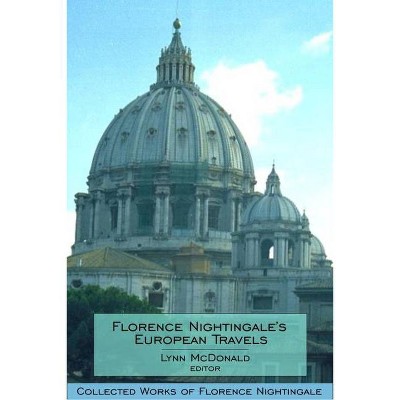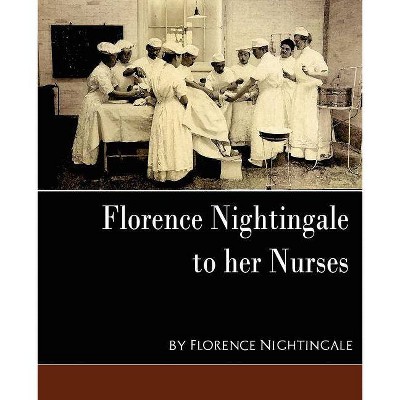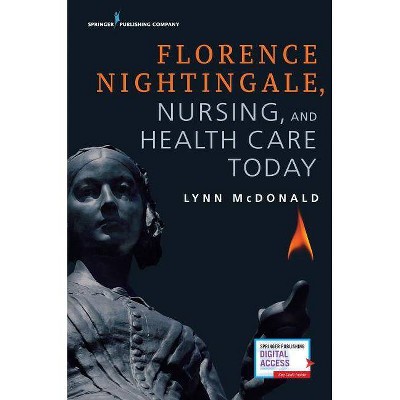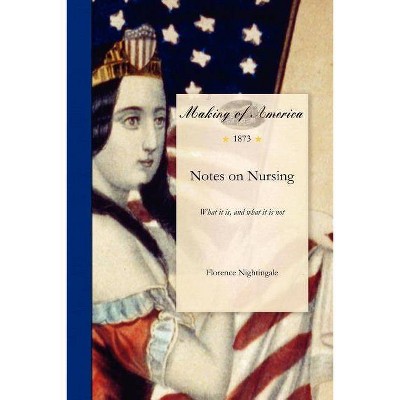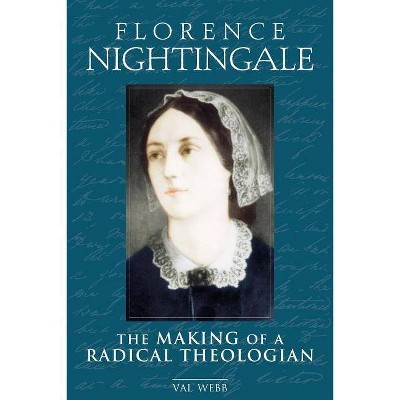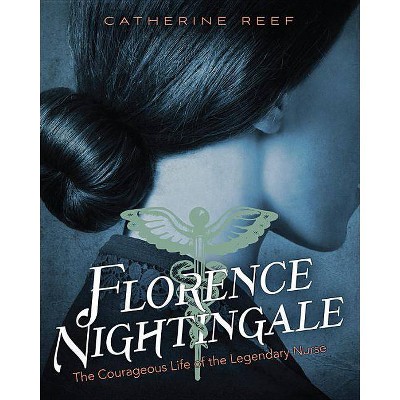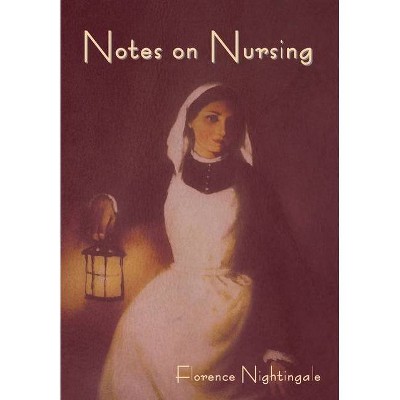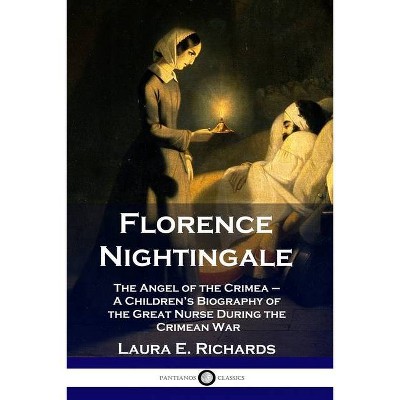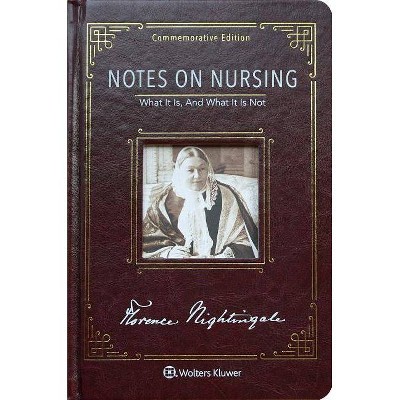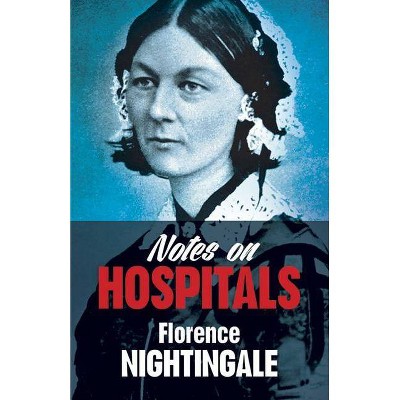Florence Nightingale on Public Health Care - (Collected Works of Florence Nightingale) by Lynn McDonald (Hardcover)
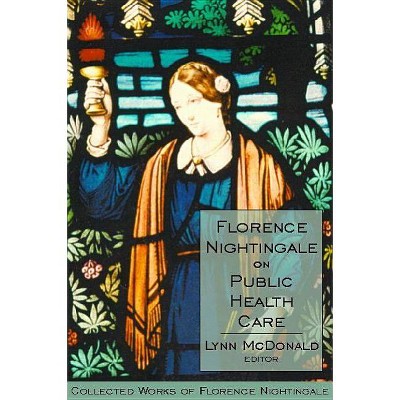
Similar Products
Products of same category from the store
AllProduct info
<p/><br></br><p><b> Book Synopsis </b></p></br></br><p> This sixth volume in the <i>Collected Works of Florence Nightingale</i> reports Nightingale's considerable accomplishments in the development of a public health care system based on health promotion and disease prevention. It follows directly from her understanding of social science and broader social reform activities, which were related in <i>Society and Politics</i> (Volume 5). <i>Public Health Care</i> includes a critical edition of <i>Notes on Nursing for the Labouring Classes</i>, papers on mortality in aboriginal schools and hospitals, and on rural health. It reports much unknown material on Nightingale's signal contribution of bringing professional nursing into the dreaded workhouse infirmaries. This collection presents letters and notes on a wide range of issues from specific diseases to germ theory, and relates some of her own extensive work as a nurse practitioner, which included organizing referrals to doctors and providing related care. </p> <p> Currently, Volumes 1 to 11 are available in e-book version by subscription or from university and college libraries through the following vendors: Canadian Electronic Library, Ebrary, MyiLibrary, and Netlibrary. </p><p/><br></br><p><b> Review Quotes </b></p></br></br><br>In...the ambitious <i>Collected Works of Florence Nightingale</i> project, series editor Lynn McDonald demonstrates why one of the best-known women of the Victorian Era continues to fascinate, one hundred and fifty years after her initial rise to fame. Until now, the most widely available literature has been written <i>about</i> rather than <i>by</i> Florence Nightingale. Delivering on the promise of convenient access to all the available surviving writing of Florence Nightingale, McDonald offers readers a meticulously transcribed, categorized, and indexed record of Nightingale's major published books, articles, and pamphlets, as well as herefore unpublished correspondence and notes. In <i>Florence Nightingale on Public Health Care</i> and <i>Florence Nightingale's European Travels</i>, Nightingale emerges as a brilliant and politically astute woman who, from her youth, was driven by intellectual mischief, unquenchable curiosity, stubborn resistance to the status quo, and an unrelenting desire to improve the living conditions of the sick poor....Lynn McDonald's extensive yet unobtrusive editorial analyses and comments are invaluable, and serve to contextualize and anchor the disparate documents that follow....<i>Public Health Care</i> and <i>European Travels</i> are invaluable reference texts for scholars interested in Nightingale and her contemporaries, the Victorian era, and the evolution of health care, illness care, and professional nursing. By providing unprecedented access to Nightingale's writings, Lynn McDonald offers readers a unique opportunity to understand Florence Nightingale, in her own words.--Sonya Grypma "University of Toronto Quarterly, Letters in Canada 2004, Volume 75, number 1"<br><br>Lynn McDonald and her collaborators have taken on a mammoth task: that of collating and organizing ``all the available surviving writing of Florence Nightingale''. The work is a remarkable collective effort....<i>Florence Nightingale on Public Health Care</i> is...a very useful resource for scholars in the fields of history of nursing and history of medicine. As well as providing the reader with carefully edited critical editions of some of Nightingale's most important works, it makes available to future scholarship in these fields a vast array of correspondence, notes and other unpublished material, which will enable a more thorough and complete understanding of Nightingale and her work.--Christine Hallett "Medical History, 50 (3)"<br><br>The <i>Collected Works of Florence Nightingale</i> is an extremely ambitious project that is a great service to scholarship. Every general academic library should own the complete set. It pulls together material that has been hitherto diffused across more than 150 collections, some of them private ones, in places ranging from Germany to India and Japan, as well as numerous English-speaking countries.--Timothy Larsen "Books and Culture"<br><br>The <i>Collected Works</i> will allow us to see for the first time the full complexity of this extraordinary and multifacted woman. It will be a tool of enormous value not only to Nightingale scholars and biographers, but also to historians of a wide variety of aspects of Victorian society: war, the army, public health nursing, religion, India, women's issues and so on.--Mark Bostridge "Times Literary Supplement"<br><br>The details and explications of her views...are presented in carefully annotated and insightful editorial discussions....[These volumes] provide a more complete understanding of this complex woman, extending our appreciation of her much beyond the `The Lady with the Lamp' legend.... The product of rigorous scholarship, of meticulous historical research--and a labour of love.-- "Canadian Bulletin of Medical History, Volume 21/1"<br><br>The Nightingale project ranks with both the Gladstone diaries and the Disraeli letters as a major undertaking in the field of Victorian-era scholarship, and therefore is of surpassing value to historians of the period, as well as to general readers.--C. Brad Faught "Anglican and Episcopal History, Vol. 81 (1)"<br><br>There are gems in this huge volume that will help us rethink Nightingale. She emerges as a more critical statistician than is often recognized; her conceptions of disease and etiology appear more ambiguous than they are sometimes presented; and one gets a clearer sense of her concept of `administration, ' which, more than any other element of nursing practice or training, appears here as the keystone of nursing reform, and the aspect in which it most seriously intersected with the reform of public medical services.--Christopher Hamlin "Bulletin of the History of Medicine"<br><br>``[I]t is clear that this is an academic project of the highest importance and integrity. It will have an impact on the work of scholars far beyond the immediate field of health history. Nightingale's interests were wide-ranging and her correspondence included some of the leading thinkers of her day....The editing of these volumes is exemplary. Every reference has been followed up, including the identification of minor <i>dramatis personae</i>. Important personalities are accorded short biographies. On every page there are biblical allusions, which are faithfully identified. Each thematic section has an introductory essay and these are amplified by a full outline of Nightingale's life and thought in volume 1. This project makes a major contribution to scholarship which will be of permanent value.''--Helen Mathers, University of Sheffield<br>
Price History
Price Archive shows prices from various stores, lets you see history and find the cheapest. There is no actual sale on the website. For all support, inquiry and suggestion messagescommunication@pricearchive.us
